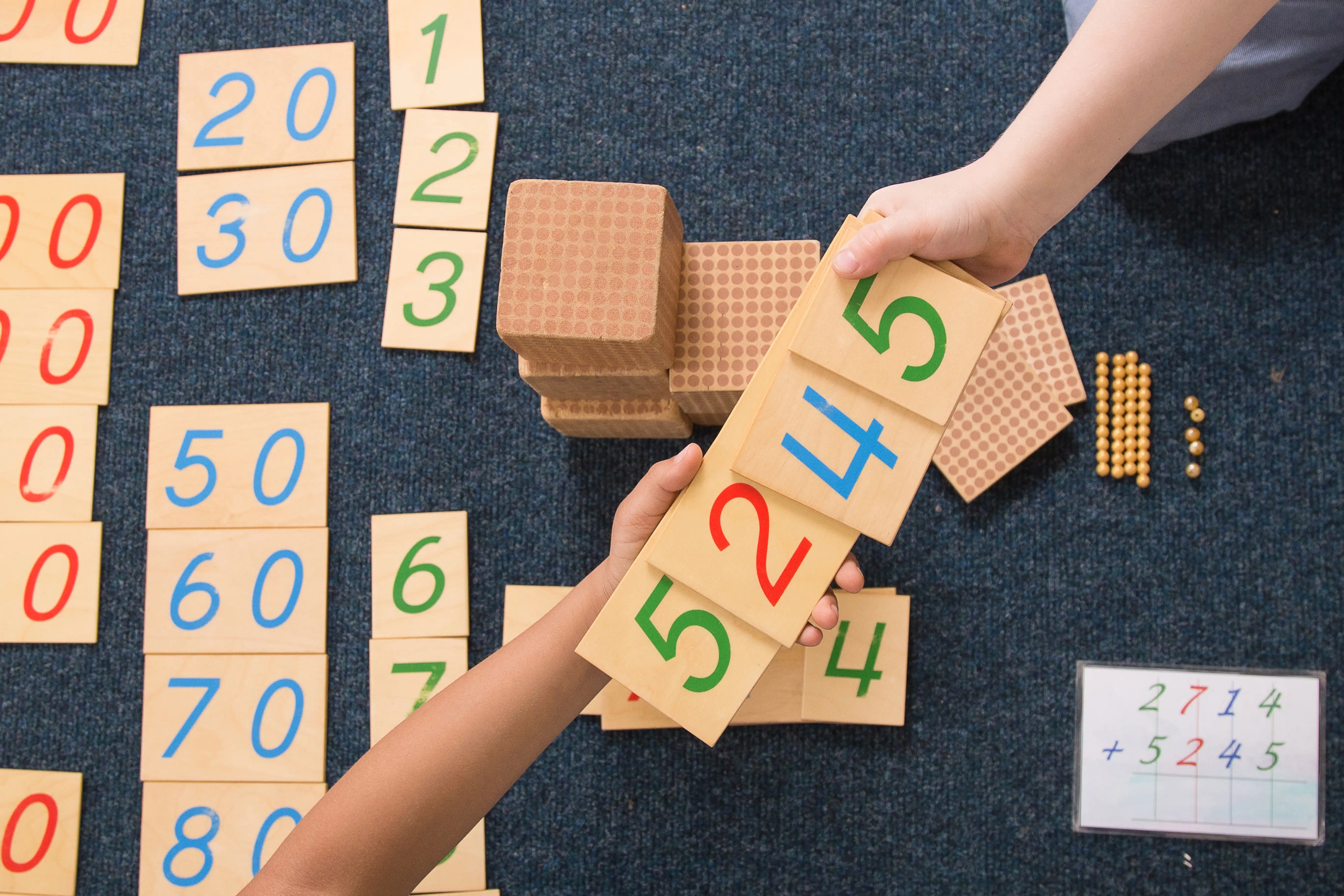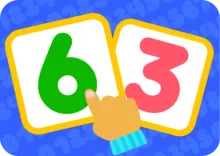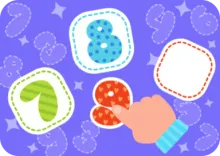Fun Kindergarten Math Games for Children
Kindergarten math games help children practice early number skills with less pressure. These activities support counting, comparing, shapes, and patterns through playful routines that fit home or classroom learning.
Table of contents
- Kindergarten math games number sense
- Why math games matter in kindergarten
- Making Math Fun and Engaging
- Indoor Math Games for Kindergarteners
- Outdoor Math Games for Active Learning
- Online math games for interactive play
- Educational Value of Math Games
- Cognitive and social benefits in math
- Keiki World app educational games
- Conclusion

Kindergarten math games to build early number sense
When you host an event to which the kids are invited, you need to plan special kindergarten math games to entertain and keep them busy. It’s even better when these games touch the learning aspect as well. In this article, we offer some ideas to take your kids’ parties to another level.
The Importance of Math Games for Kindergarteners
Fun math games for kindergarten have many advantages for your children. They are imperative to develop essential skills and improve problem-solving by allowing children to face and overcome challenges. Besides, these activities provide a hands-on approach to math learning.
They let children understand abstract concepts through concrete experiences. Many activities include visual aids and physical movement, adapting to different learning styles and needs. They are designed to be enjoyable and make learning feel like play, not work.
Making Math Fun and Engaging
The simplest way to make math interesting and relevant is to incorporate it into daily routines, such as counting groceries, measuring ingredients while cooking, or identifying shapes in the environment. Create stories where math helps you solve problems, making it more relatable.
You can use activities that involve physical movement, such as hopscotch with numbers, math relay races, or scavenger hunts. Encourage them to dance, listen to songs, and sing along to combine learning with physical activity. And last but not least, you can incorporate online learning apps and platforms that offer interactive activities.

Help your child
grow with Keiki
We’ll help you turn everyday screen time
into real learning progress.
Indoor Math Games for Kindergarteners
Here are the simple ideas for math games for kindergarteners suitable for indoor play. They can be used in a classroom or during various informal events
1. Build 3D Shapes
This game involves creating various 3D shapes using materials like building blocks, clay, or paper. It encourages creativity and problem-solving and works great for introducing basic geometry concepts. This math activity for kindergarten also helps develop fine motor skills. You may need to get materials like building blocks, modeling clay, or pre-cut paper shapes. If necessary, you can show examples of 3D shapes to be created.
2. Roll It and Color It
This easy-to-set-up activity helps develop basic learning skills. The players roll a dice and color a corresponding section of a drawing or pattern. It makes learning colors and numbers fun and enhances motor skills. You only need to provide special drawings, dice, and pencils or markers.
3. Stack Cups and Count to 100
This math game for kindergarten encourages children to stack plastic cups while counting aloud to 100. This simple activity promotes counting skills. For this, you need to get many plastic cups and designate an area for this activity. As a rule, it will be suitable for preschool kids aged 4–6.
4. Bean Bag Ladder Toss
This game requires kids to toss bean bags onto a ladder or into different targets to score points. It develops coordination, gross motor skills, and basic math skills. All you need to do is set up a ladder or create targets with different point values and mark a throwing line at a suitable distance.
5. Make 10 with Two-Sided Chips
During this activity, the participants use two-sided chips to create combinations that add up to 10. It is helpful for practicing basic addition and number recognition and developing problem-solving skills. You have to provide two-sided chips and dedicate an area to this activity.

Outdoor Math Games for Active Learning
These fun math games for kindergarten will be a great addition to outdoor parties and gatherings, especially during the warm seasons. They incorporate physical movement along with developing cognitive skills.
6. Play Hopscotch to Practice Counting
Hopscotch is a classic game in which children throw a marker (such as a small stone) onto numbered squares drawn on the ground and then hop through the squares to retrieve the marker. You can also use various kindergarten math games based on this activity. It encourages physical exercise while enhancing number recognition and counting skills. Draw a hopscotch grid on the ground with chalk, or buy a ready-made one that fits any surface.
7. Obstacle Course Relay
It is a relay race where participants navigate through various obstacles, such as cones, tunnels, and hurdles, as quickly as possible. It helps develop a set of important skills, including:
- physical strength and agility;
- teamwork and communication;
- problem-solving and strategic thinking.
You need to set up various obstacles along the course and divide the participants into teams. Make sure you clearly explain the rules and demonstrate the course.
8. Scavenger Hunt
This activity is where participants search for specific items or complete tasks based on a list of clues. It is very flexible, and you can adapt it to different ages, interests, and objectives. This counting game for kindergarten encourages exploration and curiosity and improves problem-solving and critical thinking. The kids also learn how to work in teams, get along, and collaborate.
Generally, you don’t need any special equipment for it. Instead, you have to think about the creative tasks or clues and be attentive to detail. When hiding the items in the area or setting the tasks, make sure you organize everything clearly.
9. Balloon Volleyball
This game is a fun variation of volleyball played over a low net or string using balloons instead of a ball. It is exciting, safe, and suitable for all ages. All you need is to inflate several balloons, set up a net at an appropriate height, and divide the participants into teams.
10. Shape Maze
This is an activity where participants navigate through a maze created from shapes (e.g., circles, squares, triangles) to reach the finish line. For this one, you need to create a maze layout using shapes either drawn on the ground or made with tape. It helps introduce basic geometry concepts and spatial awareness and improves problem-solving. To make it even more engaging, you can set a timer and let participants finish in a limited time.
Related Games in Keiki App
Online Math Games for Interactive Learning
Now, let’s discuss online math and number games for kindergarten. These are the most popular options.
11. Number Sense Games
These activities are designed to help young children understand and work with numbers. These games focus on basic math skills such as recognizing numbers, counting, comparing quantities, and understanding the concept of more or less. They are suitable for kids at a young age, provide immediate feedback, and offer adaptable learning paths for every student.
12. Counting and Cardinality Games
Counting and Cardinality Games are focused on helping kids learn to count objects, understand the order of numbers, and grasp the concept of cardinality. They are enhanced with colorful graphics and interactive elements, which makes them interesting for children. With these activities, kids can count forward and backward, recognize the number of objects in a set, and understand the concepts of numbers and quantities.
13. Addition and Subtraction Games
These simple math games help introduce and practice basic arithmetic operations. They generally use visual aids and interactive tools to simplify concepts. By encouraging problem-solving and critical thinking, they can become a solid basis for math learning.
14. Geometry Games
These online activities familiarize children with shapes, sizes, patterns, and spatial understanding. These games help kids recognize different geometric figures and understand their properties. They can provide hands-on experience with shapes and their relationships.
15. Measurement and Data Games
These games teach kids how to measure objects using standard units. They also discover how to collect, organize, and interpret data. Such activities often involve measuring length, weight, and volume using graphs and charts.
Educational Value of Math Games
Number games kindergarten are a dynamic and engaging way to learn new things. Sometimes, they can be the only effective option for young children. They can also help create positive experiences and attitudes towards learning, which is essential for this age group.
- Building Number Sense. Number sense is the intuitive understanding of numbers and their relationships with each other. To develop it, you need to focus on pattern recognition, number relationships, and estimation skills. They will all help enhance your child’s ability to make reasonable guesses.
- Developing Addition and Subtraction Skills. These two math operations are the basis for the entire learning process. You need repetition and practice in a game format to help them memorize basic facts and recall them quickly. Activities that present word problems or scenarios, where children must decide which operation to use, develop critical thinking and problem-solving skills. They are even more exciting for kids to deal with.
- Understanding Geometry Concepts. These games familiarize learners with shapes and their properties. Adding exercises for identifying and differentiating between various shapes helps build a strong foundation in geometry. Interactive and exploratory play facilitates understanding concepts like symmetry, unity, and the properties of two-dimensional and three-dimensional shapes.
- Learning Measurement and Data Handling. Activities that involve measuring length, weight, volume, or time develop a child’s ability to use and understand measurement tools and units. This hands-on approach to math is a great way to use knowledge in real-life situations.
Build real skills through fun, educational games for your child
Try KeikiCognitive and Social Benefits of Math Games
These are the most significant advantages of incorporating math activities into your parties, classes, or gatherings. They can be excellent ice-breakers for kids to get to know each other.
- Enhancing Cognitive Skills. Many kinder math games involve remembering numbers, patterns, or rules. Training memory is the essential cognitive aspect of many exercises. Also, these activities often present players with puzzles or challenges that require logical thinking and strategy.
- Encouraging Social Interaction. Although some activities can be played individually, most require teamwork with other players. The participants learn to communicate effectively, share ideas, and work together to solve problems.
- Promoting Problem-Solving Abilities. During math games for kindergarteners, the children may need to overcome all sorts of challenges. This makes them more interested in the outcome and engaged in the process. Many games also require developing a certain strategy and goal-oriented thinking.
- Boosting Confidence and Motivation. Completing challenges and progressing in math games can increase a child’s enthusiasm for learning in general. Recognizing their achievements helps to build a positive self-image and a sense of accomplishment. This is essential for kindergarten kids who need to build positive experiences with learning activities.
Keiki World App: Best Educational Games and Activities
In some cases, it is best to use online resources to entertain kindergarten children. This can happen when you have limited space for many games or simply don’t have the equipment needed. Keiki World App is a comprehensive learning platform for children aged one to six and up. It has a wide range of kids' games and activities that help develop essential skills. The aim of the app is to make learning fun and interactive.
This platform offers lots of games to suit everyone’s interests and needs. Children can solve puzzles or perform basic math operations. There are many educational materials, such as videos, games, and worksheets. It is a subscription-based service with different packs. Here are the most popular ones for learning math:
- Counting Вasics.
- School Preps Roadmap.
- Creativity Boost pack.
- Dino Learning pack.
- Logic & Problem-Solving pack.
Each pack includes a unique set of exercises, Keiki Puzzles, and Printable Worksheet Bundles. These are great options for making the educational process more fun and improving the child’s overall learning experience.
Conclusion
Engaging kids in various fun activities is the best way to entertain them during parties and other gatherings. Adding a few of them will organize their time and help them use their energy productively. These games not only make learning enjoyable but also lay a strong basis for more advanced mathematical thinking in the future.













